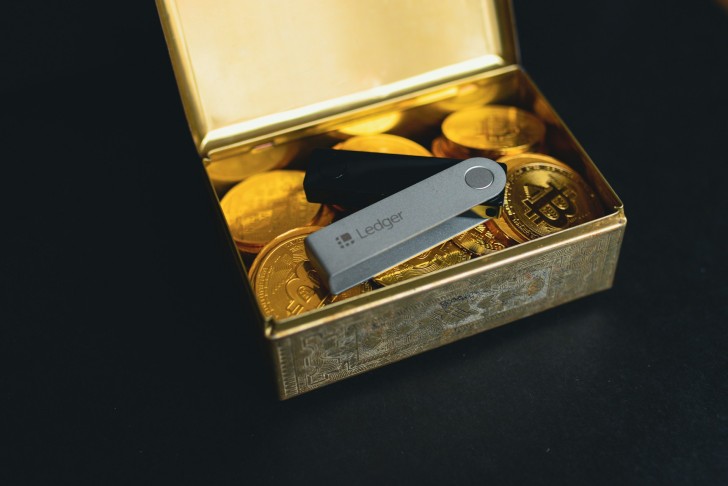As crypto adoption continues to grow across Europe, choosing the right wallet has become increasingly important. Whether you're sending Bitcoin to another EU country, holding Ethereum securely, or swapping tokens on the go, your wallet defines your experience. This article breaks down some of the best crypto wallet apps in Europe based on functionality, fees, and security — with a focus on practical use in the EU regulatory context.
1. Ka.app – Fast, Secure, and EU-Friendly
Ka.app is a mobile-first crypto wallet designed for simplicity and compliance within the European landscape. It offers non-custodial storage, meaning users retain full control of their private keys, while also allowing fast on- and off-ramps via SEPA bank transfers and cards. Unlike many wallets that require KYC, Ka.app allows anonymous wallet creation, though identity verification is required for fiat transactions.
Key Features:
- KYC for crypto-to-crypto use
- Supports Bitcoin, Ethereum, Solana, and multiple tokens
- Integrated swap and convert features
- EUR deposits and withdrawals via IBAN
- Strong privacy with regulatory alignment
Fees:
Crypto transactions are subject to network fees only. Fiat-related actions (buying or selling crypto) may include third-party processing fees (~1–2%).
Ka.app aligns well with the EU's MiCA framework, which emphasizes transparency and wallet self-custody.
2. Trust Wallet – Broad Token Support, No KYC
Trust Wallet is one of the most popular multi-chain wallets available globally. It is open-source and owned by Binance, but it operates as a non-custodial solution. European users often appreciate its intuitive design and support for thousands of assets, including NFTs and DeFi tokens.
Key Features:
- No registration or KYC needed
- Available as a mobile app and browser extension
- Built-in Web3 browser for accessing dApps
- Works with Ethereum, BNB Chain, Polygon, and more
Fees:
Trust Wallet itself does not charge fees for sending or receiving tokens, but users pay blockchain network fees. Third-party services for swaps or purchases may add fees of 1–5%.
However, Trust Wallet may not offer the most localized features for EU users (like SEPA transfers or EUR-based pricing), and integration with fiat is limited.
3. MetaMask – Ideal for Ethereum and DeFi Users
MetaMask is widely used among Ethereum enthusiasts in Europe. It supports ERC-20 tokens and Layer 2 networks like Arbitrum and Optimism. Though originally a browser extension, MetaMask now offers mobile apps as well.
Key Features:
- Deep integration with DeFi protocols
- Supports custom networks (Layer 2, testnets, etc.)
- Option to connect with hardware wallets like Ledger
Fees:
Sending crypto involves normal network fees. The built-in swap feature includes a 0.875% service fee, which may be high for frequent users. Fiat on-ramp fees vary by provider and can be 3–5%.
For regulatory transparency, MetaMask users should note that it’s non-custodial, and transactions are not automatically traceable unless voluntarily linked to personal identities. That aligns with privacy concerns but may pose problems for institutional or business users under EU rules.
4. Coinbase Wallet – Regulated But Centralized Risks
While Coinbase Wallet is technically non-custodial, it’s often associated with the centralized Coinbase exchange. This offers some benefits for new users — such as easier onboarding and trusted brand reputation — but also introduces regulatory scrutiny and centralized dependencies.
Key Features:
- Good fiat integration (especially in the Eurozone)
- Compatible with NFTs and Web3
- Owned and backed by Coinbase Global Inc.
Fees:
Crypto transfers between Coinbase Wallet and the main Coinbase exchange may be free. External transfers incur standard network fees. Buying crypto via card or bank transfer can cost 1.5%–4%.
While suitable for European users who prefer regulated entities, it’s worth noting that Coinbase is fully compliant with EU AML and reporting obligations, which reduces privacy.
5. Ledger Live – Hardware Security with App Control
For users prioritizing long-term security, Ledger offers a hardware wallet experience combined with a desktop/mobile app, Ledger Live. It’s ideal for HODLers and investors managing significant amounts of crypto in Europe.
Key Features:
- Top-tier hardware security
- Supports 5,000+ tokens and staking
- App lets users buy, swap, and manage assets
Fees:
Ledger Live transactions incur network fees plus a possible 1% fee for swaps or purchases via third-party providers.
Ledger products are also compliant with EU import and consumer electronics standards, which may be a factor for business use or audits.
How to Choose the Right Crypto Wallet in Europe
When selecting a wallet, here are some EU-specific factors to consider:
- Regulatory Compliance: Some wallets support KYC, tax tracking, or SEPA payments. These features may help stay compliant with the EU’s Travel Rule.
- Privacy: Wallets like Ka.app or Trust Wallet offer strong privacy, which may appeal to individual users concerned with data sharing.
- Fiat Integration: If you plan to convert crypto to euros or use IBAN, look for apps like Ka.app or Coinbase Wallet.
- Supported Networks: Depending on whether you use Ethereum, Bitcoin, or Solana, compatibility matters.
There is no single "best" crypto wallet in Europe — it depends on your goals. Ka.app stands out for its seamless EU integration and KYC-optional use. Trust Wallet and MetaMask offer broader DeFi and token access, while Coinbase Wallet and Ledger appeal to users who value brand trust or hardware security.
As the European crypto space matures under MiCA and related frameworks, wallet apps that balance security, usability, and regulatory alignment will become the new standard.
 Editorial staff
Editorial staff

 Editorial staff
Editorial staff


